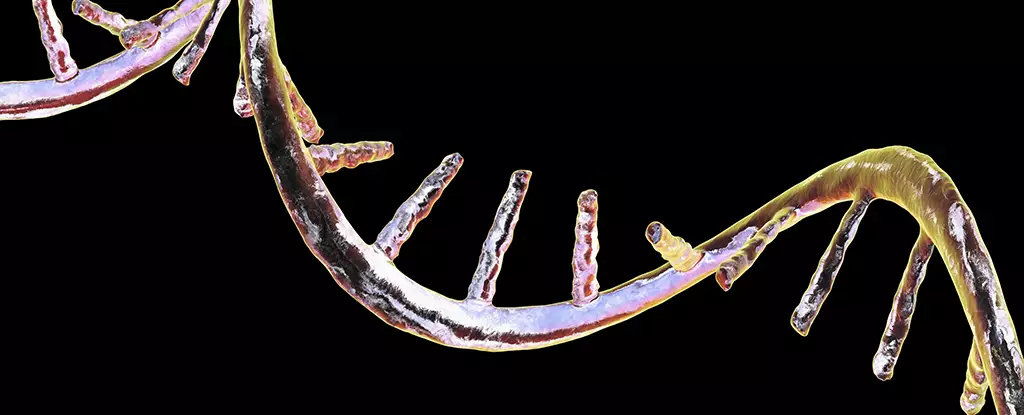In a significant advancement in cancer research, scientists have made strides in understanding the connection between mutations in the TET2 gene and various forms of cancer. While previous studies have established a link between TET2 mutations and leukemia, recent findings suggest a more intricate relationship exists. Researchers in the United States have shifted their focus from DNA to RNA to uncover the mechanisms at play. This innovative approach unveils how TET2 influences RNA methylation, providing potential new targets for cancer therapies.
Initially, most cancer research centered around DNA, the blueprint of genetic information. However, RNA plays a critical intermediary role in gene expression, facilitating the transition from DNA to functional proteins. Methylation, a common modification that can regulate RNA function, is pivotal in determining how tightly DNA is packaged into chromatin—a complex of DNA and proteins that dictates gene accessibility. The recent revelation is that TET2 mutations disrupt this delicate balance, leading to aberrant growth and proliferation of cells, particularly in blood cancers.
TET2 has been described as a key player in regulating chromatin structure during both early development and throughout adulthood. During the formative stages, TET2 is crucial for enabling stem cells to differentiate into various cell types, preparing the canvas for normal biological functions. However, adult cells rely on TET2 to maintain strict regulatory control over chromatin. Once mutations arise in the TET2 gene, this control evaporates, potentially triggering a cascade of cellular mismanagement. Biochemist Chuan He of the University of Chicago aptly refers to this process as an “incredibly complicated dance,” underscoring the complexities of gene expression and cellular regulation.
The research team’s findings indicate that the TET2 gene mediates a specific RNA modification known as m5C, which recruits the protein MBD6, essential for maintaining chromatin packaging. When TET2 mutations occur, the interaction with MBD6 is compromised, leading to uncontrolled cell growth. Remarkably, lab experiments demonstrated that inhibiting MBD6 resulted in the death of leukemia cells. This offers a tantalizing prospect for developing targeted therapies aimed at this specific pathway. As He highlights, the goal is to create a “silver bullet” capable of selectively eliminating cancer cells without adversely affecting normal tissues.
Beyond cancer, TET2 mutations have been linked with various inflammatory diseases, including heart disease, stroke, and diabetes. Inflammation arising from blood cells bearing TET2 mutations can exacerbate these conditions, suggesting that managing these mutations could provide a dual benefit—preventing both cancer and chronic inflammatory diseases. Oncologist Caner Saygin points out the challenge faced by medical professionals in prescribing treatments for patients who do not yet exhibit cancer symptoms. However, if therapies can be developed to target and eliminate cells with TET2 mutations, it could significantly enhance the quality of life for these individuals.
The ongoing research surrounding TET2 mutations reveals a complex interplay between genes, RNA, and cellular regulation, with profound implications for cancer treatment. By focusing on RNA methylation and its regulatory roles, scientists are opening new avenues for developing targeted therapies that could transform cancer care and improve outcomes for patients. The journey to fully understand these mechanisms continues, but the potential for innovative treatments targeting TET2 pathways offers hope not just for cancer patients but for those at risk of inflammatory diseases linked to these genetic mutations. As researchers solidify their findings, we stand on the brink of a new era in personalized medicine that could redefine how we treat cancer and safeguard against chronic illnesses.


Leave a Reply